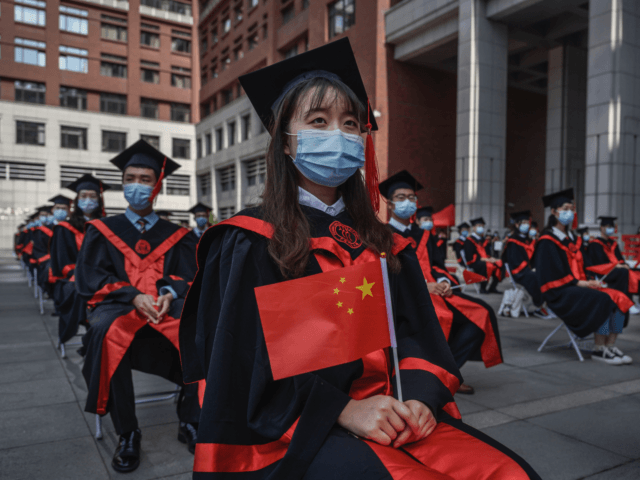By the year 2030 the number of Chinese students attending universities in the United Kingdom will have more than doubled from the start of the decade, a report indicates.
According to the Chinese-based digital marketing group Sinobris, the number of applications from Chinese students to undergraduate programmes will rise to 50,000 by 2030, compared to 21,250 in 2020.
The report cited factors such as the rising number of middle-class parents in China who are looking beyond the rigorous education model in the communist country as well as the rising number of people aged 18-years-old, which is set to hit 16.5 million people by 2030.
The United Kingdom remains one of the top desired destinations for Chinese students, the report claims, due to the ease and speed at which degrees and doctorates can be obtained in concert with the prestige and good reputation of universities in Britain.
Sinobris predicted that approximately one in 700 Chinese people in their mid-twenties will have studied in Britain by the end of the decade.
The expected influx of massive waves of students from Communist China comes amid increasing concerns over the connections between British universities and the so-called Middle Kingdom.
Responding to the report, the chairman of the Foreign Affairs Committee in the House of Commons, Tom Tugendhat, told The Times that while he found it encouraging that there is such high demand for places in British universities, he warned that “like any industry, we need to be careful that we don’t become financially over-reliant on one country.”
“Dependency creates weakness,” he added — a lesson some European economies which have been reliant on Russian oil and gas are currently learning to their cost in another area of politics.
In May of last year, a joint investigation by the British government’s Foreign Office, Special Branch, and Her Majesty’s Revenue and Customs (HMRC) tax agency “established a correlation” between the reliance on tuition from Chinese students and technology transfers to Peking (Beijing) from universities in Britain.
One such university heavily reliant on Chinese tuition, Imperial College London — which rose to international prominence for its doomsday pandemic models that prompted world governments to implement Chinese-style lockdowns — was alleged to have had “four research centres sponsored by major Chinese weapons suppliers,” which reportedly worked on the development of next-gen stealth technology for China’s air force.
Last year, Britain’s foreign intelligence service, MI6, was also reported to be investigating “some of the most prestigious universities in the country” for violating national security laws through working with Chinese weapons makers.
According to a report from The Times, the investigation later identified 200 British academics who allegedly helped Beijing develop weapons of “mass destruction”.
Academics from at least 33 universities, including from Cambridge, were also accused of having worked alongside the Chinese Academy of Engineering Physics (CAEP), the chief nuclear weapons developer for the Chinese government.
The British government’s minister for tech and the digital economy, Chris Philp, said that universities in Britain should be wary of accepting students from China, as Beijing has demonstrated “a very clear strategy of seeking to acquire critical intellectual property”.
“You want to forget about geopolitics and just collaborate openly but I think that is not how states like China view higher education,” he cautioned.
Follow Kurt Zindulka on Twitter here @KurtZindulka

COMMENTS
Please let us know if you're having issues with commenting.